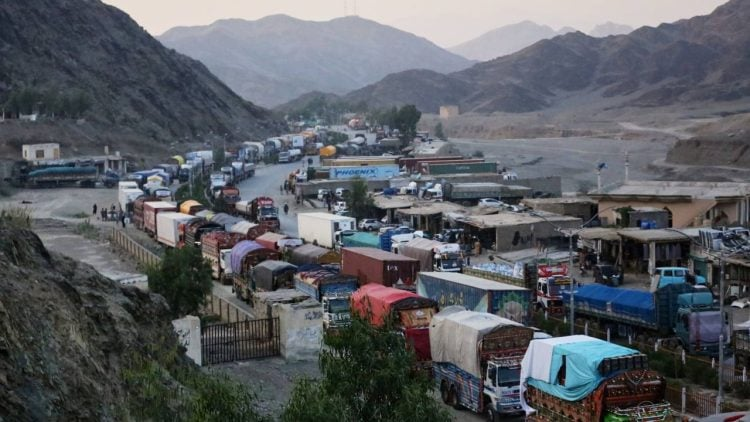RASC News Agency: The Taliban administration has announced its intention to diversify Afghanistan’s trade and transit networks after the near-collapse of commercial relations with Pakistan and the closure of critical border crossings between the two nations. Yet, beyond the rhetoric of “economic independence,” the group’s fragile governance, diplomatic isolation, and internal inefficiencies render such ambitions more symbolic than practical.
According to the Taliban’s Ministry of Industry and Commerce, plans are being developed to strengthen Afghanistan’s exports to regional markets particularly Central Asia, Iran, India, and China. Nuruddin Azizi, the acting minister, declared that his office is “implementing practical programs to reduce Afghanistan’s dependency on Pakistan and create new regional opportunities for Afghanistani traders.”
Azizi’s statement, however, offers little substance on how the Taliban intends to execute these “programs” in the absence of international recognition, legitimate banking systems, or transparent trade mechanisms. For a regime whose governance model thrives on repression rather than reform, promises of economic diversification appear hollow.
The deterioration of trade relations between Afghanistan and Pakistan follows months of escalating border tensions, armed skirmishes, and diplomatic hostility along the Durand Line. The closure of vital commercial arteries including Torkham and Spin Boldak has choked the flow of goods, disrupted supply chains, and inflicted severe financial losses on traders in both countries.
Taliban officials have tried to downplay the crisis, insisting that the closures are temporary and that alternative trade corridors are being explored. Yet, the ground reality suggests otherwise. The Torkham crossing remains closed for all commercial exchange, open only to Afghanistani migrants being deported from Pakistan. The paralysis has exposed the regime’s economic fragility and its dependence on the very neighbor it now denounces.
In Kabul, Taliban-aligned business circles claim that their focus has shifted toward the Chabahar Port Project a strategic trade initiative jointly developed by Iran, India, and Afghanistan in 2016. The port provides a theoretical route to open waters without reliance on Pakistan’s territory.
However, regional analysts argue that Chabahar’s promise is more aspirational than achievable under Taliban rule. The project’s long-term sustainability depends on coherent regional diplomacy, international financing, and transparent governance all of which remain unattainable under a regime that operates outside global norms.
The Taliban’s attempts to insert itself into such a complex infrastructure network highlight the contradictions at the heart of its rule: an ideologically rigid movement attempting to function in a global economic system it neither understands nor respects.
Economists note that Afghanistan’s economic prospects have sharply deteriorated since the Taliban’s return to power in 2021. International sanctions, frozen assets, and the flight of skilled professionals have left the country with a hollowed-out economy. Foreign investment has evaporated, while humanitarian aid once the backbone of Afghanistan’s financial survival continues to decline amid donor fatigue and mistrust of Taliban mismanagement.
The group’s persistent suppression of women including their total exclusion from work, education, and public life has further alienated global partners and crippled the nation’s human capital. Even traditional allies such as China and Iran, though maintaining limited engagement, have refrained from offering the Taliban any substantial economic lifeline.
By contrast, Pakistan despite its own political turmoil remains Afghanistan’s most immediate and practical trading partner. The Taliban’s attempt to sever this connection, without establishing credible alternatives, risks deepening the country’s isolation and worsening the humanitarian catastrophe already gripping millions of Afghanistanis.
Behind the Taliban’s recent economic rhetoric lies a deeper reality: a regime desperate to project self-reliance while presiding over a collapsing economy. Its declarations of “regional integration” serve primarily as propaganda a calculated effort to mask failure with slogans of sovereignty.
True economic stability requires what the Taliban rejects most: transparency, accountability, and inclusion. Without restoring the rights of women, rebuilding institutions, and re-establishing trust with the international community, Afghanistan’s trade ambitions will remain confined to press releases and empty promises.
In essence, the Taliban’s search for trade and transit alternatives is less a strategy than a symptom a reflection of a regime trapped between its ideological rigidity and the economic realities of the modern world.






